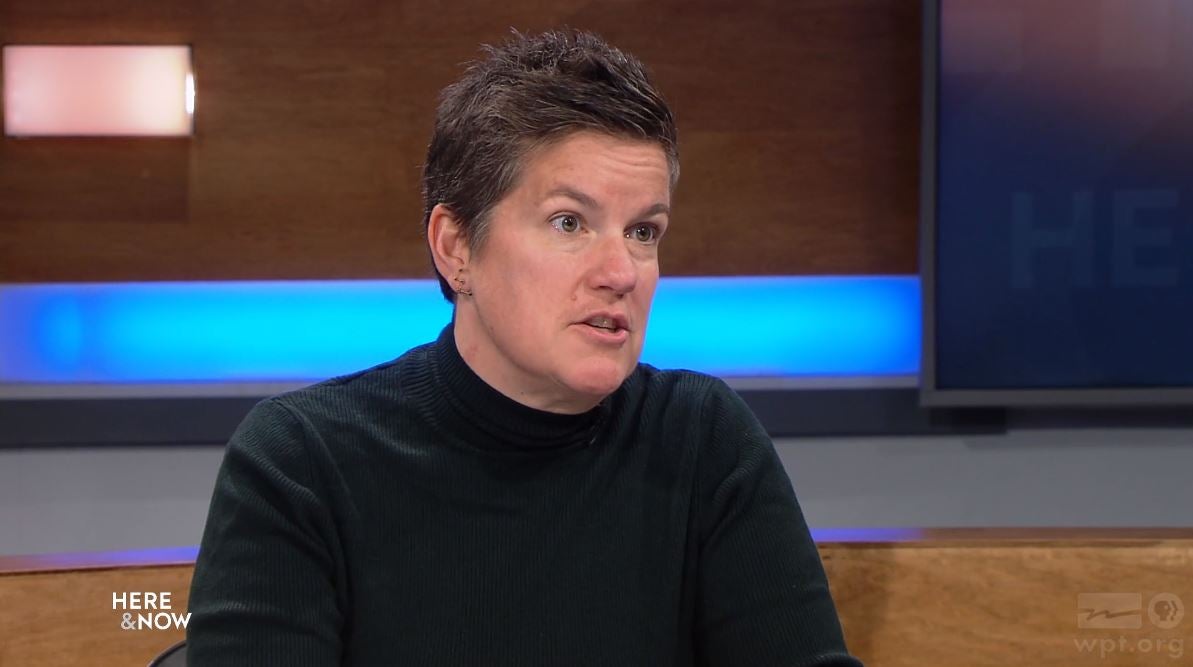Wisconsin small businesses are still able to receive $10,000 grants to help start up or expand their operations as part of the state’s Main Street Bounceback Program. Around $34 million has gone to more than 3,400 businesses and nonprofits throughout the state as of April 1, according to the Wisconsin Economic Development Corp., which manages the program.
The program launched in August and gives businesses grants they can use to pay leases and cover other costs that come from opening up a physical storefront.
Federal stimulus funds have made the grants possible.
News with a little more humanity
WPR’s “Wisconsin Today” newsletter keeps you connected to the state you love without feeling overwhelmed. No paywall. No agenda. No corporate filter.
Business applications in Wisconsin reached record levels during the COVID-19 pandemic.
The grant program gives people more chances to shop local and support their communities, Missy Hughes, secretary of WEDC, said.
“When you put this money to work in a small business in a community, that dollar gets stretched and used again and again by our small businesses,” Hughes said. “You really see the local economies benefiting from having that influx and that stimulus.”
Hughes said while many small businesses have survived the pandemic, seeing empty spaces along main streets across the state can be discouraging.
“Folks just aren’t stopping in their cars to walk around because it doesn’t look like much is happening,” Hughes said. “By filling those vacant spaces, we can help not only the new businesses, but also the businesses that survived the pandemic.”
That especially goes for smaller counties. Hughes said businesses in all 72 Wisconsin counties have received funds.
Carol Roth is the executive director of Driftless Development, Crawford County’s economic development organization. She said $10,000 can go a long way.
“For your small mom-and-pop business that’s on Main Street, it’s huge,” Roth said. “It can pay your rent for a whole year.”
Roth said the grants have helped level the playing field for businesses in an area that often can’t compete with larger cities for grant funds.
“If you want to measure us against Milwaukee or Madison or Green Bay, we don’t stand a chance,” Roth said. “That doesn’t mean that our businesses don’t have the same needs, that doesn’t mean that we don’t have the same needs to develop our economies out here and make life better for the people that live here.”
Roth said downtown Prairie du Chien has been revitalized, in part, because of the grants and the new businesses that the funds have brought into the area.
“We’re actually looking for more spaces,” Roth said. “It’s creating a bigger sense of community with our residents and with our businesses.”
As of March 31, Crawford County has received 30 of the program’s grants. Roth said that helps create jobs in a county that had a 5.3 percent unemployment rate in February, well above the state’s unemployment rate of 2.9 percent.
“Granted, these aren’t like those huge jobs, but that’s really important for our workforce development,” Roth said.
Roth notes that funding helps public services such as local schools by way of tax revenues.
“This amount of money that’s injected into the economy, it reaches way farther than really impacting businesses,” Roth said. “It helps everything else in our communities as well.”
Cynthia Olmstead is business operations director for Driftless Brewing Company in Crawford County. She said the grant money allowed the brewery to expand its patio and make its indoor space safer.
“It’s been particularly hard because we have so many small businesses around here, they’ve been hit very hard by the pandemic,” Olmstead said. “These types of grant programs have been great.”
Roth said she hopes there will be ways to keep the momentum going.
“Is there a way that we can learn from this grant to make future things, future opportunities like this accessible to all communities, regardless of population?” Roth said.
It’s one of multiple ways the Evers administration has used federal stimulus funds to help small businesses during the pandemic. Last month, he announced more than $86 million will go to organizations that support small businesses owned by the state’s marginalized communities.
The Bounceback program still has funds available for approximately 1,600 more businesses. Small businesses that move into a vacant commercial space in the state before the end of June can apply with WEDC’s regional partners.
Hughes said small businesses play a role in creating communities people want to live in.
“Our quality of life in Wisconsin is really dependent on our communities and our neighborhoods being thriving, safe, interesting,” Hughes said. “That’s what small businesses bring to the table, you know, they’re unique, they’re quirky, they’re different.”
Wisconsin Public Radio, © Copyright 2025, Board of Regents of the University of Wisconsin System and Wisconsin Educational Communications Board.







